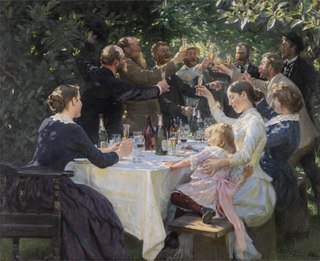
A party is a gathering of people who have been invited by a host for the purposes of socializing, conversation, recreation, or as part of a festival or other commemoration or celebration of a special occasion. A party will often feature food and beverages, and often conversation, music, dancing, or other forms of entertainment.
Dinner usually refers to what is in many Western cultures the biggest and most formal meal of the day. Historically, the largest meal used to be eaten around midday, and called dinner. Especially among the elite, it gradually migrated to later in the day over the 16th to 19th centuries. The word has different meanings depending on culture, and may mean a meal of any size eaten at any time of day. In particular, it is still sometimes used for a meal at noon or in the early afternoon on special occasions, such as a Christmas dinner. In hot climates, the main meal is more likely to be eaten in the evening, after the temperature has fallen.

A doughnut or donut is a type of pastry made from leavened fried dough. It is popular in many countries and is prepared in various forms as a sweet snack that can be homemade or purchased in bakeries, supermarkets, food stalls, and franchised specialty vendors. Doughnut is the traditional spelling, while donut is the simplified version; the terms are used interchangeably.
The following outline is provided as an overview of and topical guide to meals:

A promenade dance or promenade, commonly called a prom in American English, is a dance party for high school students. It may be offered in semi-formal black tie or informal suit for boys, and evening gowns for girls. This event is typically held near the end of the school year. There may be individual junior and senior proms or they may be combined.
Elevenses is a short break taken at around 11:00 a.m. to consume a drink or snack. The names and details vary among countries.

White tie, also called full evening dress or a dress suit, is the most formal evening Western dress code. For men, it consists of a black tail coat worn over a white dress shirt with a starched or pique bib, white piqué waistcoat and the white bow tie worn around a standing wing collar. Mid or high-waisted black trousers with galon, a braid of trim consisting of two silk stripes to conceal the outer seams of the trousers, along with court shoes complete the outfit. Orders, decorations and medals may be worn. Acceptable accessories include a black top hat, white gloves, a white scarf, a pocket watch, a white pocket square, and a boutonnière. Women wear full-length ball or evening gowns with evening gloves and, optionally, tiaras, jewellery, and a small handbag.
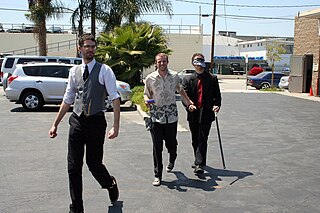
A bachelor party, also known as a stag weekend, stag do or stag party, or a buck's night, is a party held/arranged by the man who is shortly to enter marriage.

A debutante, also spelled débutante, or deb is a young woman of aristocratic or upper-class family background who has reached maturity and is presented to society at a formal "debut" or possibly debutante ball. Originally, the term meant that the woman was old enough to be married, and part of the purpose of her coming out was to display her to eligible bachelors and their families with a view to marriage within a select circle.

A buffet can be either a sideboard or a system of serving meals in which food is placed in a public area where the diners serve themselves. A form of service à la française, buffets are offered at various places including hotels, restaurants, and many social events. Buffet restaurants normally offer all-you-can-eat food for a set price, but some measure prices by weight or by number of dishes. Buffets usually have some or mostly hot dishes, so the term cold buffet has been developed to describe formats lacking hot food. Hot or cold buffets usually involve dishware and utensils, but a finger buffet is an array of foods that are designed to be small and easily consumed only by hand, such as cupcakes, slices of pizza, foods on cocktail sticks, etc.
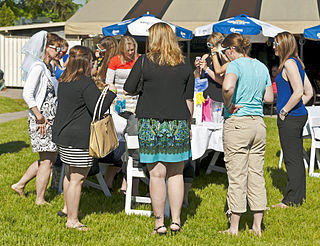
A bachelorette party or hen night is a party held for a woman who will soon be married. While Beth Montemurro concludes that the bachelorette party is modelled after the centuries-old stag night in the US, which is itself historically a dinner given by the bridegroom to his friends shortly before his wedding, Sheila Young argues that its British counterpart evolved from a number of earlier pre-wedding traditions for women whose origins are obscure but which have been around for at least a century in factories and offices across the UK. Despite its reputation as "a sodden farewell to maiden days" or "an evening of debauchery", these events can simply be parties given in honor of the bride-to-be, in the style that is common to that social circle.

A May Ball is a ball at the end of the academic year that takes place at any of the colleges of the University of Cambridge. They are elaborate and lavish formal affairs, requiring black tie or sometimes white tie, with ticket prices ranging from around £100 to as much as £640 for a pair of dining tickets at Trinity. May Ball budgets can exceed £200,000; a report by the student newspaper Varsity in 2016 found that the budget for the 2015 Trinity ball was £286,000. The balls are held in the colleges, starting around from 6-9 p.m. and lasting until well after dawn. "Survivors photographs" are taken of those who last until morning. Other colleges frequently hold winter balls, such as the popular Selwyn Snowball, who recently had acts such Tinchy Stryder and Mumford and Sons headlining.
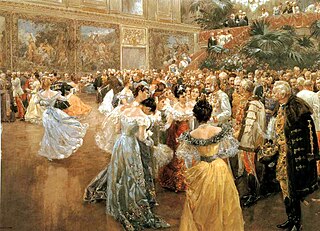
A ball is a formal dance event often characterised by a banquet followed by a social dancing. Ball dancing emerged from formal dances during the Middle Ages and carried on through different iterations throughout succeeding centuries, such as the 17th century Baroque dance and the 18th century cotillion. Several variations exists such as the masquerade and debutante ball as well as the more modern prom.

An evening gown, evening dress or gown is a long dress usually worn at formal occasions. The drop ranges from ballerina, tea, to full-length. Such gowns are typically worn with evening gloves. Evening gowns are usually made of luxurious fabrics such as chiffon, velvet, satin, or organza. Silk is a popular fibre for many evening gowns. Although the terms are used interchangeably, ball gowns and evening gowns differ in that a ball gown will always have a full skirt and a fitted bodice, while an evening gown can be any silhouette—sheath, mermaid, fit and flare, A-line, or trumpet-shaped—and may have straps, halters or even sleeves.

A ute muster is an Australian festival which brings together large numbers of utes and their owners. These events typically include competitions and other side events, occur annually, and normally last several days and are held in rural and regional areas of Australia and New Zealand.
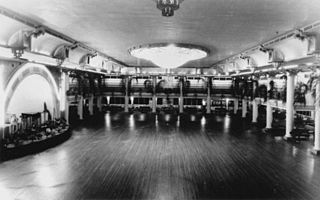
The Cloudland Dance Hall, originally called Luna Park, was a famous entertainment venue located in Bowen Hills, Brisbane, Queensland, Australia. It was demolished in 1982 and the site was subsequently developed into an apartment complex.
Lunch is a meal eaten around the middle of the day. It is commonly the second meal of the day, after breakfast, and varies in size by culture and region.
A school's Debs, also called Grad or Grads, is the formal ball for students in their final year of secondary school in the Republic of Ireland, analogous to the prom in North American schools or the school formal in Australia. It is most commonly referred to as the "Debs" but some schools call it the "Grad" or "Grads". Each ball is associated with a specific school, which may take place during the school year, immediately after the Leaving Certificate examinations in June, or after the results are announced in August. Some schools have a smaller "pre-Debs" some months before the Debs. Other schools, including in Tralee, hold their Debs in January.
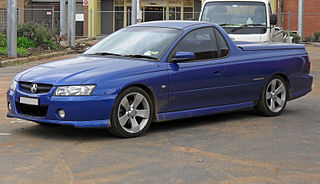
Diminutive forms of words are commonly used in everyday Australian English. While many dialects of English make use of diminutives and hypocorisms, Australian English uses them more extensively than any other. Diminutives may be seen as slang, but many are used widely across the whole of society. Some forms have also spread outside Australia to other English-speaking countries. There are over 5,000 identified diminutives in use in Australian English.

A meal is an eating occasion that takes place at a certain time and includes consumption of food. The names used for specific meals in English vary, depending on the speaker's culture, the time of day, or the size of the meal.
















